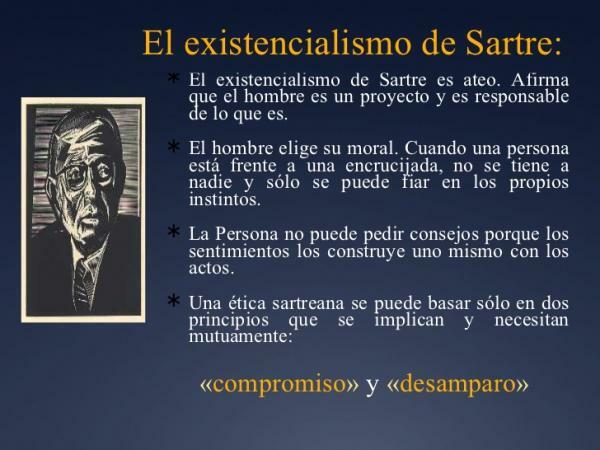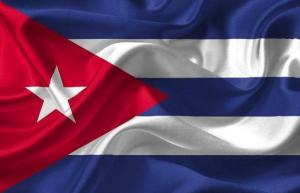The 3 representatives of the EXISTENTIAL ATHEIST
Jul 15, 2021
0

Image: Slideshare
We dedicate this lesson from a TEACHER to representatives of atheist existentialism, a philosophical current worried about the existence of the human being and tries to answer all the questions that revolve around it. The human being is a being that exists in the world, a world that he himself has created, and therefore is, as the human being thinks he is. The only thing that exists is the human being and the thought of him. The human essence only exists based on the existence of it, because the human being is becoming, it is not determined rather, he is free to create his own ideas, and therefore, his own essence, through each decision he makes. taking. Being and freedom is the same, because freedom is inherent in being. If you want to know more, he continues reading this lesson. We started!
Index
- Jean-Paul Sartre, the main representative of atheist existentialism
- Albert Camus, another representative of existentialism
- Simone de Beauvoir, vindictive existentialism
Jean-Paul Sartre, the main representative of atheist existentialism.
One of the highest representatives of atheist existentialism is Jean-Paul Sartre(Paris, 1905-1980), was a French philosopher and writer, companion of Simone de Beauvoir. Although she studies in Paris, she moves to Germany after being awarded a scholarship, and there she knows the philosophy of Husserl and Heidegger. In 1938 he published his best known work Nausea, and here the foundations of existentialism already appear. From this moment on, the philosopher began to gain some popularity, becoming the incarnation of the existentialist movement. Other essential works where the philosopher develops his existentialist philosophy are Being and Nothingness Y The existentialism is a Humanism.
The starting point of all Sartre's philosophy will be the theme of human freedom. The human being, he says, is condemned to be free, and therefore, caught up in the action, he is responsible for his own actions, for his life. The human being is not determined, although he may be conditioned by certain social conventions, but he is also totally free to decide. What's more, he is obliged to continually decide and with each decision, he builds his life.
Human existence, affirms Sartre, is a conscious existence, a fact that the difference from the existence of things, and it is a subjective phenomenon, since it is at the same time consciousness of the world and consciousness of oneself herself.
Sartre differentiates the to be "per se" of to be "for-yes", being the human being is a being for himself, because he is aware of his own existence, existing as a being that "is there”, A being that is being realized as he exists. Not being a be itself, the human being, is nothingness, unlike the be itself which is pure positivity, denial of nothing. Only the "I" is a be itself. The essence of the human being, he assures, is his freedom, a freedom without direction or determination, and therefore, he is nothing.
And it is in the midst of this overwhelming freedom where the human being encounters anguish, which is nothing more than the feeling of the person who discovers himself as an indeterminate being, totally free, who becomes aware of its“what to do”, that he is nothing and also that he cannot stop being so. The human being is understood like this, as "draft".
Man is the only one who is not only as he conceives himself, but as he wants himself, and as he conceives himself after existence, as he wants after this impulse towards existence; man is nothing other than what he makes himself. this is the first principle of the existentialism.

Image: Slideshare
Albert Camus, another representative of existentialism.
Albert camus (Mondovi, Algeria, 1913-Villeblerin, France, 1960), was a novelist, playwright and essayist French, author of such important works as Abroad, The myth of Sisyphus, The misunderstanding and Caligula, Letters to a German friend... that reflect the marked existentialist influence of the author. But his novel Plague supposes a turn in the thought of him. Now, it will be resistance and solidarity of the human being the protagonists of his works.
OnPlague, Camus shows a human being, who after the war, not only has to rebuild Europe, but also has to build himself. The human being now appears with the most oppressive fears of him. Other works in this line are ANDl man in rebellion, The Fall and The Exile and the Kingdom.
One can observe, in Camus, a philosophy of the absurd and one philosophy of revolt. The idea of the absurd implies that the human being seeks a meaning of life that serves as the basis for his values. That is, it seeks a moral and rational order in the world. But the world is revealed as something indeterminate, without direction and therefore absurd. The human being asks for answers that the world does not give him. The philosophy of her revolt revolves around human freedom, social justice, peace and the elimination of violence.

Image: Slideshare
Simone de Beauvoir, vindictive existentialism.
To end this lesson with the most interesting representatives of atheist existentialism, we cannot stop talking about Simone de Beauvoir (Paris, 1908-1986), was a French philosopher and novelist, representative of the atheist existentialist movement and one of the most influential thinkers in the fight for women's rights, and Sartre's partner, with whom she will live all her life.
The most representative work of her, The Second Sex, published in 1949, marks a turning point in the history of the Feminist movement, and part of the social changes that occurred at the time are due to it. Her feminism, she is existentialist, and like Sartre, she thinks that the human being lacks an essence prior to existence, but that the essence is being built in human existence. In this sense, the human being is "draft" Y "Liberty".
From the concepts of existentialist philosophy Simone de Beauvoir makes a series of claims in defense of theWomen rights, something that would have already begun in the Enlightenment, favored by the optimistic atmosphere of the time. As a result, women got the right to vote or the right to higher education. At present, the struggle continues, because equality is not yet a reality.
Only after women begin to feel at home on this earth, does a Rosa Luxemburg, a Madame Curie, appear. They dazzlingly demonstrate that it is not the inferiority of women that has determined their insignificance. Simone de Beauvoir
If you want to read more articles similar to Atheist existentialism: representatives, we recommend that you enter our category of Philosophy.
Bibliography
Sartre, J. P. The Nausea, 1938. Ed. GIULIO EINAUDI EDITORE, 2005.
Beauvoir, S. The Second Sex, 1949. Ed. Cátedra, 2017



